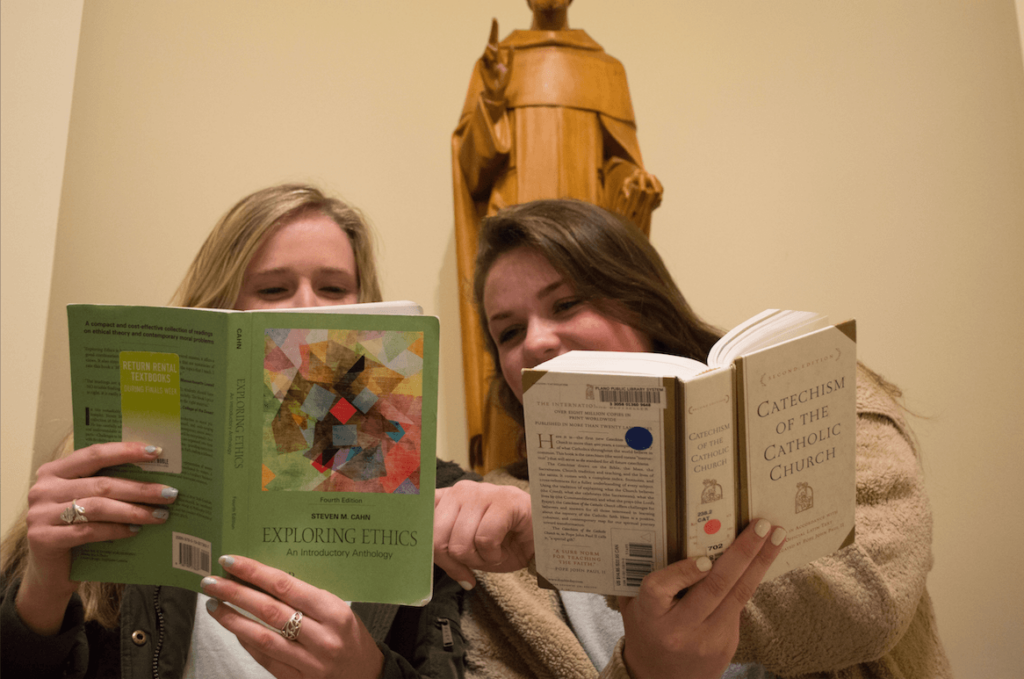by The Cowl Editor on April 19, 2018
Campus

The liberal arts core curriculum at Providence College serves as the foundation for students’ education. Between the rigorous Development of Western Civilization program and an abundance of core requirements—which cover topics such as intensive writing, fine arts, diversity, and oral communication—the liberal arts are rightfully stressed throughout academics on campus.
While a large handful of students on campus have chosen to major in various types of business or STEM- related subjects, it is crucial for students to still receive some sort of liberal arts education in order to better prepare themselves for life after college and the future in general.
Dr. Stephen Lynch, English professor and the director of the Liberal Arts Honors College, explained, “Science and technology have done wonders for us, and I would not want to live in a world without them. But science and technology provide tools—and tools don’t tell us how to use tools. We now have the capacity to manipulate the genes of virtually all plants and animals (including humans), but science and technology in themselves cannot determine whether that is good or bad or how such power should be used or controlled. For that we need a broad range of knowledge in the humanities and the social sciences. With the advances in sciences, we need the humanities and social sciences more than ever.”
Even though many news websites, such as U.S. News & World Report, put out recent lists that dub various types of engineering and business as the “Top College Majors” or “College Majors with the Highest Starting Salaries,” it is important to think about all the overlooked skills that come with having a liberal arts education; some of these include critical thinking, an increased awareness of social factors and culture, and soft skills. These are skills that computers and technology cannot possess, and are what make humans so unique.
While the liberal arts core curriculum at PC may seem tedious from time to time, it ultimately allows students to become better equipped to face society’s unforeseen challenges. Not everything can be solved through a computer program or math equation; thus, it is necessary for students to spend time developing key social skills that are only accessible through studying liberal arts.
-Katherine Torok ’20
Providence College is known for its Development of Western Civilization program and its emphasis on humanities courses. Likewise, Providence College has an excellent biology program that attracts many students, and this is the selling point for many students during the college-searching process.
For those who major in the humanities, it may seem that the core curriculum at PC is unparalleled; for who that major in something outside of the humanities sphere, however, the academic core can feel overwhelming and impossible to accomplish.
The core curriculum at PC requires two courses in theology and philosophy in addition to four semesters of DWC. Along with these, the civic engagement, diversity, intensive writing I/II, oral communication proficiency, fine arts and natural science requirements it makes it nearly impossible for a science-based major to graduate on time without taking extra summer or winter courses.
With the amount of money that students have to pay to attend PC in general, it is ridiculous that the core curriculum at PC could put students in a position where they may have to pay thousands more dollars to graduate on time, or on the other hand, thousands more dollars to stay an extra semester.
In addition, the intensity of the core curriculum can makes it very difficult for students to balance all of their classes per semester. Oftentimes, it feels as if as soon as I catch up on one pile of work, there’s another four waiting for me to tackle.
The nature of the core curriculum and its attempt to build well-rounded students is important, however, it needs some remodeling. Instead of taking two semesters of theology or philosophy: one would suffice and the College could make certain classes count for numerous proficiencies at once.
At the very least, the amount of money it costs to take summer or winter classes should be reduced. Alternatively, there should be more realistic information given to potential PC majors in terms of exactly what their schedule will resemble for various semesters.
-Laura Arango ’20